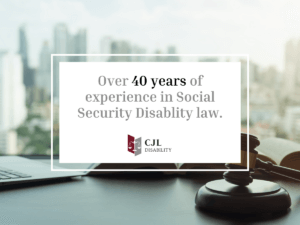What happens after your trial work period ends? Our attorneys explain how the SSDI trial work period can lead to extended eligibility, benefits rules, and expedited reinstatement options.
For individuals receiving Social Security Disability Insurance (SSDI), returning to work can be daunting. Many fear that even attempting to earn an income might jeopardize the benefits they rely on.
However, the Social Security Administration (SSA) offers programs like the Trial Work Period (TWP) to encourage beneficiaries to test their ability to re-enter the workforce without losing their SSDI benefits. In this article, we’ll explore what happens after your TWP ends and how programs like the Extended Period of Eligibility (EPE) can help you transition back to work.
What Is the SSDI Trial Work Period?
The Trial Work Period is an SSA program that allows SSDI beneficiaries to return to work without losing their monthly benefits. It provides a safety net for those who want to test their ability to work while continuing to receive full SSDI payments.
- Duration: The TWP lasts for nine months within a rolling five-year (60-month) period.
- Earnings Threshold: In 2024, any month a beneficiary earns $1,110 or more (before taxes) counts as a TWP month. Earnings below this threshold do not count toward the nine-month limit.
- Non-Consecutive Months: The nine months do not need to be consecutive, offering flexibility for beneficiaries who may need to pause and restart work.
The TWP is a valuable tool, providing a risk-free way to explore employment without fearing losing vital SSDI benefits.
What Happens After the Trial Work Period Ends?
Once you’ve completed the nine months of your Trial Work Period, your benefits do not automatically stop. Instead, you enter a new phase called the Extended Period of Eligibility (EPE). This phase lasts 36 months and offers additional protections as you transition into the workforce.
The Extended Period of Eligibility (EPE)
During the EPE, beneficiaries can continue receiving SSDI benefits for months when their gross income remains below the Substantial Gainful Activity (SGA) threshold. The SGA threshold is adjusted annually by the SSA and serves as a benchmark for determining whether a person’s work activity is substantial enough to impact their disability status.
- SGA Thresholds: $1,550 per month in 2024 for non-blind beneficiaries and $2,590 for blind beneficiaries
- Grace Period: During the EPE, you are entitled to a three-month grace period if your income exceeds the SGA threshold. You will still receive full SSDI benefits during this time, even if your earnings are above the SGA level.
What If You Cannot Continue Working After the TWP?
If you attempt to return to work but cannot sustain employment due to your disability, the SSA offers the option for Expedited Reinstatement of benefits. This program allows you to restart SSDI benefits without filing a new application.
To qualify for expedited reinstatement, you must:
- Have stopped receiving benefits because of earnings from work.
- Be unable to perform substantial gainful activity.
- Have a disability that is the same or related to the one for which you originally received benefits.
- Request reinstatement within five years of your benefits ending.
This option provides support for individuals who may experience a worsening of their condition or who are unable to maintain employment.
Maximizing the Benefits of the SSDI Trial Work Period
The TWP, EPE, and expedited reinstatement programs aim to support SSDI beneficiaries as they transition back into the workforce. Understanding these programs and how they work can help you make informed decisions about returning to work while protecting your benefits.
Need Help With SSDI Denials, Appeals, or Questions About Your Trial Work Period?
Navigating the SSDI Trial Work Period, Extended Period of Eligibility, or other Social Security Disability concerns can feel overwhelming—but you do not have to face it alone. At Culbertson, Jacobs & Laboda, our experienced attorneys specialize in Social Security Disability claims, including denials and appeals.
Whether you are returning to work, need help reporting earnings, or want to protect your benefits, our team is here to provide the guidance you need. Contact us today and start securing your future.

